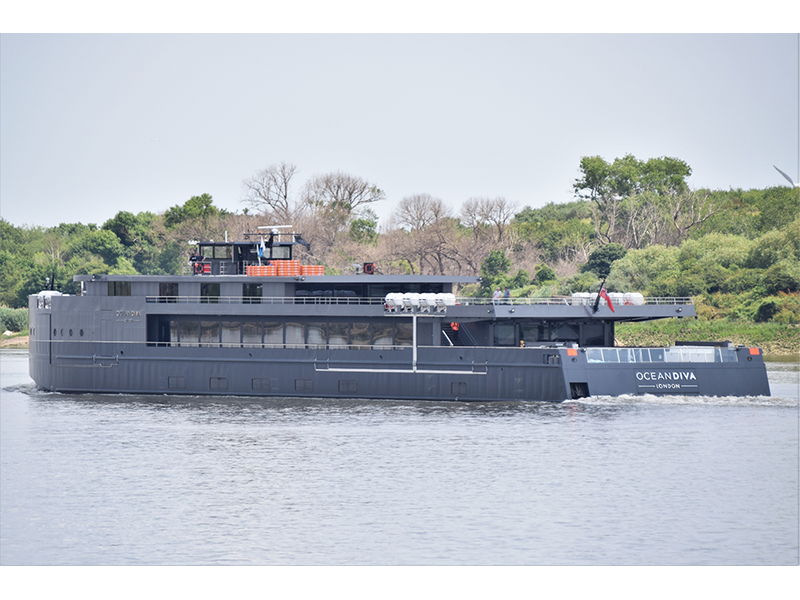Passenger Vessel Collision: Propulsion Trials Too Challenging
The Marine Accident Investigation Branch (MAIB) has cited survey failings in the results of its investigation into the loss of propulsion control and subsequent contact with a moored barge by Oceandiva London.
On June 22, 2023, the inland waterways passenger vessel lost propulsion control and contacted a moored hopper barge at Halfway Reach on the River Thames, London. Oceandiva London was undergoing propulsion trials as part of its Maritime and Coastguard Agency (MCA) survey required for the issue of a Passenger Ship Safety Certificate.

The impact damage to Oceandiva London included breaches to its hull plating above the waterline with deformation of decks and structural frames. There were no passengers on board and none of the six crew or 12 contractors were injured.
Oceandiva London’s propulsion and electrical power system was supplied by a stored energy system with two battery banks driving two electric motors and a bow thruster. On the day of the accident the attending MCA surveyor’s requirement was to trial the power and propulsion system under various operating conditions, including in system failure mode.
The first set of trials involved depleting the batteries to verify battery performance. The next set of trials assessed maneuvering capability of the vessel using the bow thruster alone. The final trials required Oceandiva London to have its propulsion set to full ahead with one of the battery banks disconnected from the system. This trial was intended to evaluate how the control system reacted to a sudden change in available battery power and was successfully achieved on isolating the starboard battery bank.
When the procedure was repeated for the port battery bank power was lost to the starboard propulsion motor but the port propulsion motor remained powered up but not under control, causing Oceandiva London to veer towards and contact the moored barge.
The MAIB’s preliminary assessment identified that:
• Oceandiva London’s crew had insufficient knowledge and experience of the power and propulsion systems to challenge the surveyor’s plan for the trials; identify the developing situation; or take effective remedial action when propulsion control was lost.
• The MCA surveyor had not discussed in detail with the crew the requirements for the trials and expected outcomes.
• The surveyor’s requirements for the trial caused the power system to be operated outside of manufacturer’s limitations.
• The MCA had not produced any guidance for surveyors when assessing stored energy propulsion systems.
The MAIB has written to the MCA expressing concern over the planning and conduct of surveys.
